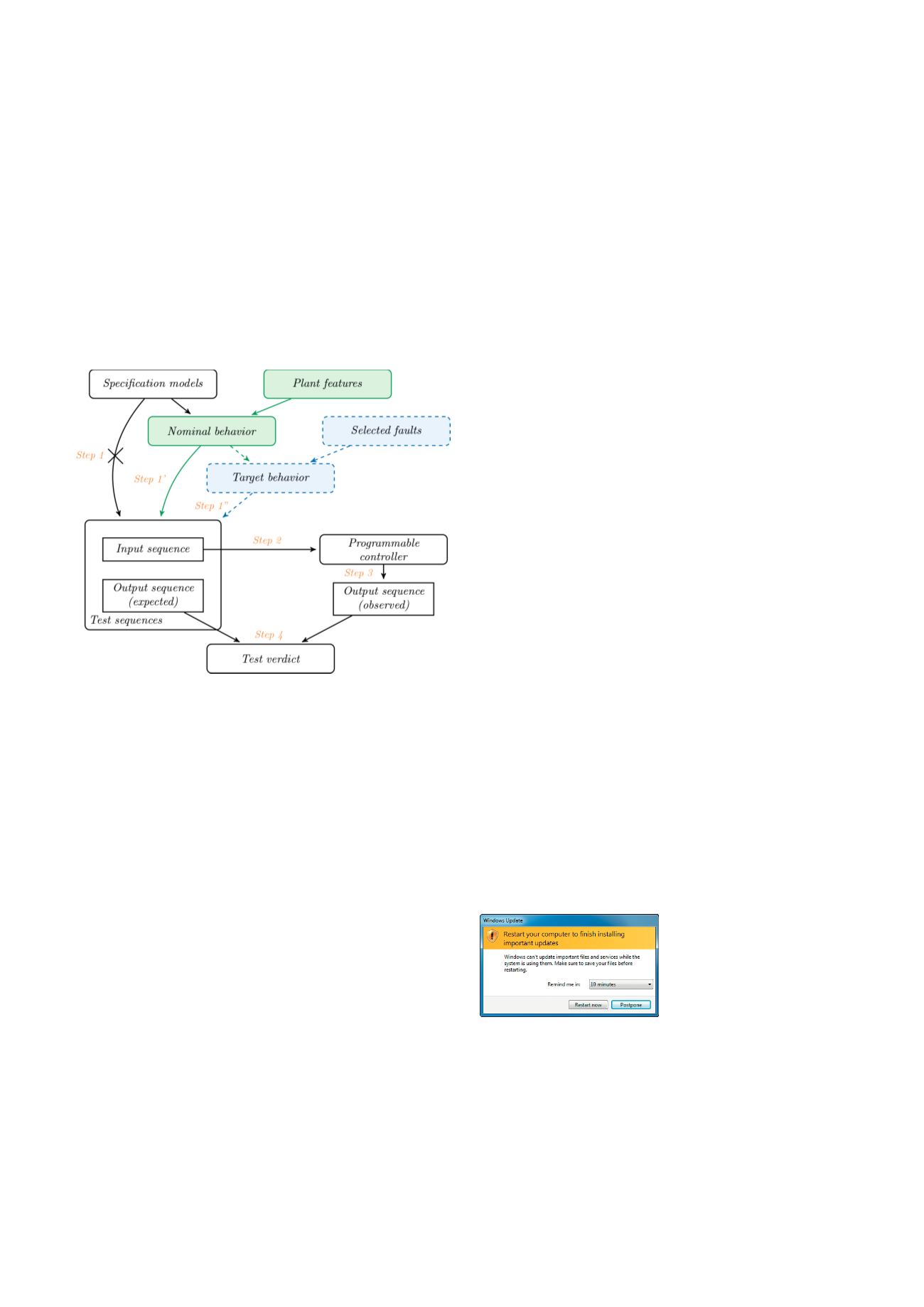

215
Safe Embedded Systems
Development, control, verification and validation of dependable cyber-physical systems
n
The activities of the Assistant Professorship of Safe Embedded Systems (SES) focus on the
development of formal methods and tools to improve the dependability of cyber-physical systems.
These methods are applied throughout the different phases of the development and implementation
of a system, from the formalization of its requirement to its long-life support. As part of the Depart-
ment of Mechanical Engineering, these activities play an interface role between the formal methods
developed in the computer science field and applications in mechanical engineering.
Model-Based Testing of Embedded Systems
Validation by testing is a mandatory procedure for safety-
critical controllers. However, the validation of a logic
controller is often only considered in the later phases of
its development. Thus, if specific non-functional require-
ments related to testing are not initially considered in the
Framework of the testing with plant features approach
specification models, this could lead to the impossibility of
validating the behavior of a controller by means of testing.
In 2017, SES extended its design-to-test approach for dis-
crete event systems. This approach aims at improving the
testability of controllers and reducing the additional human
workload required to test critical logic controllers reliably.
Also, to guide, in the early phase, the effort of testing to
the nominal behavior of a cyber-physical system, SES has
developed an approach which permits the extraction of
simple features from the physical behavior and to com-
bine them with the specification models. This approach
requires limited expert knowledge about the physical
behavior but leads to a drastic reduction in the test
sequence length.
The current focus in this area is the extension of the
existing approaches to timed and hybrid systems.
Projects
■■
Design-to-test and testing with plant features
approaches for black-box testing of programmable
controllers (internal)
■■
Test and verification of machine-learning-based
systems (internal)
Dynamic Software Update of Programmable Controllers
Current industrial automation plants are controlled by
programmable logic controllers (PLC), soft-PLCs or indus-
trial PCs. Using a software-based PLC or an industrial
PC enables the implementation of new methods such as
dynamic software updating (DSU).
Since the lifetime of a production facility can be very long,
the need to update the software at some point is inevitable.
It may include the implementation of new features, an
increase in performance, or simple bug fixes. Depending
on how severe this change is, the update of the facility may
not be feasible due to downtimes caused by the shutdown,
update and restart phases of the plant. By using DSU,
modifications of the model can still be prepared offline
and follow the same modelling procedure as before, but
the downtime can be drastically decreased and in the best
case completely elimi-
nated, thus increasing the
productivity of the plant.
In 2017, SES started a
new project on the devel-
opment of methods to for-
malize and implement IEC
61499 models in Erlang
Runtime System; thus, supporting an industrial standard
in the field of production automation and benefiting from
the experience of DSU in the telecommunication field.
Project
■■
Dynamic Software Update of Programmable Logic
Controllers (BMWi ZIM)
Illustration of a troublesome required
restart after a software update



















